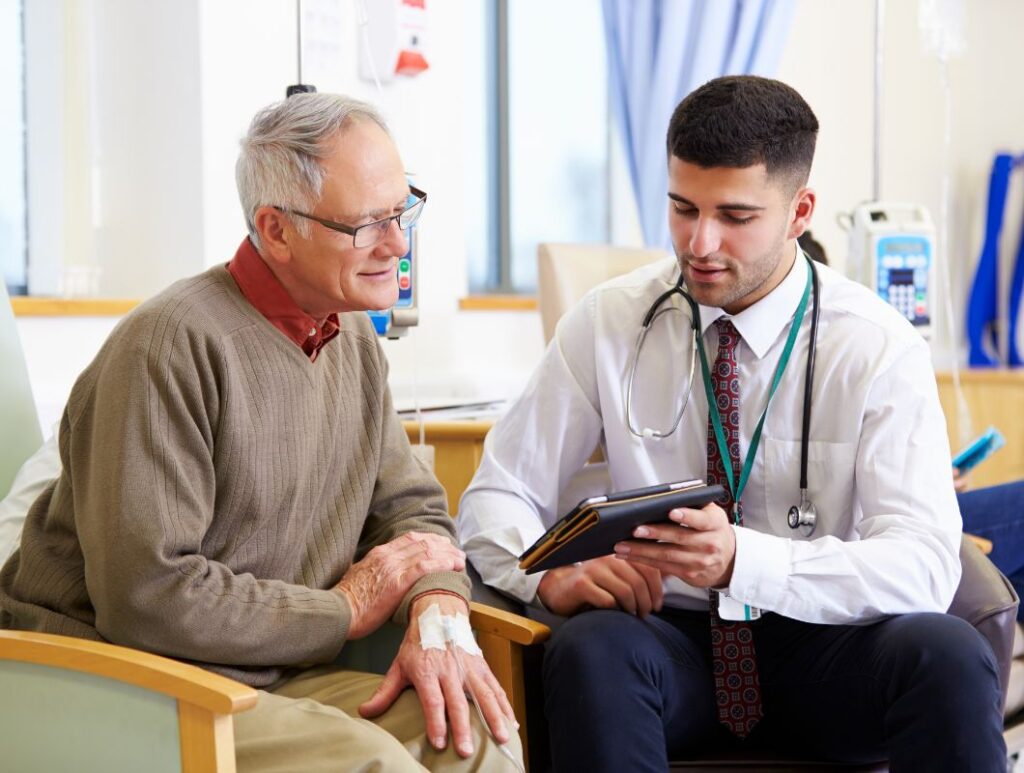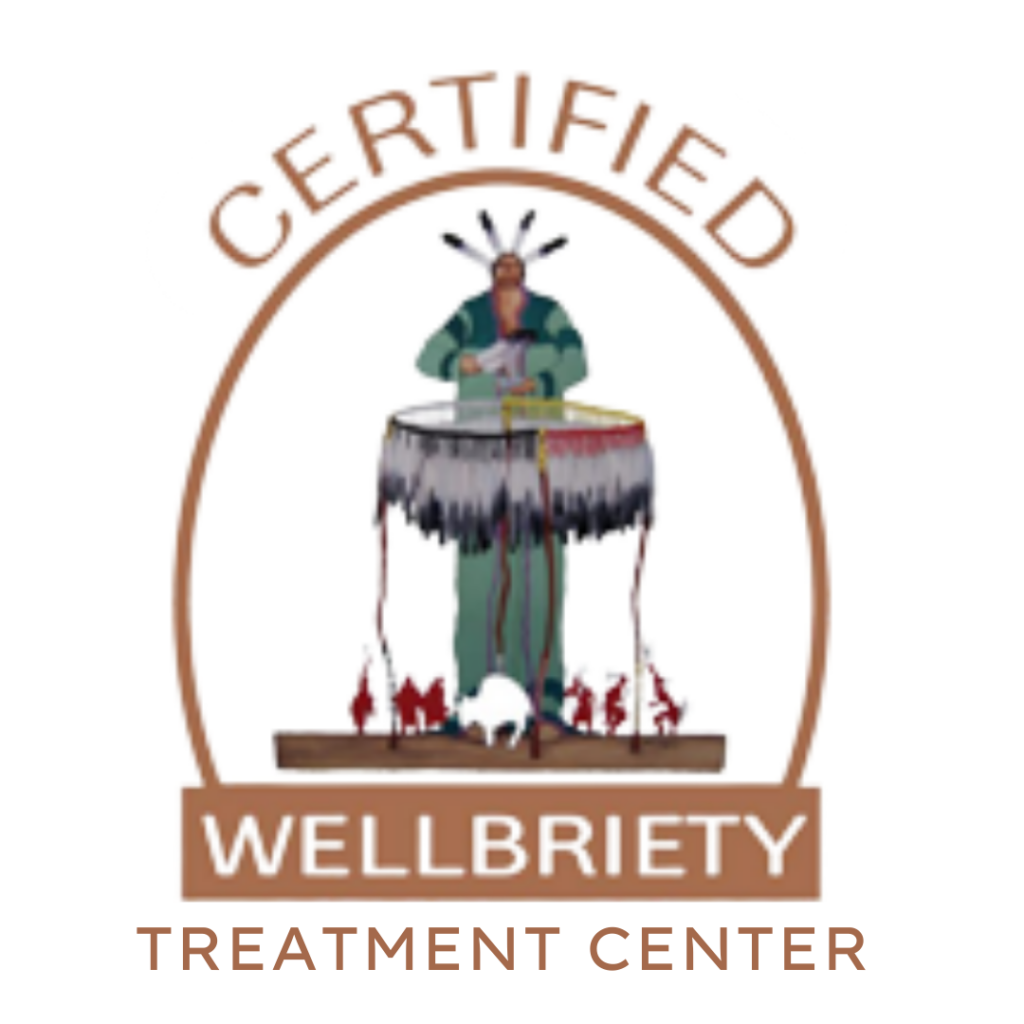Opioid Addiction
The opioid epidemic is a significant public health crisis. It continues to threaten the lives of millions of Americans every day. Although opioids treat a variety of medical conditions, the life-threatening consequences of opioid addiction impact countless communities across the United States and cannot be ignored.
As more people become aware of the consequences opioid addiction can have for themselves and their loved ones, the need for effective prevention and treatment options has become more important than ever.

What Is Opioid Addiction?
Opioids are a class of drugs that interact with opioid receptors in the brain, producing feelings of euphoria and pain relief. While opioids can be prescribed by doctors to treat pain, they also pose a high risk for abuse and addiction. In fact, opioid-related overdoses are responsible for thousands of deaths each year.
The exact cause of opioid addiction is not fully understood, but it is thought to be a complex interaction of genetic, biological, and environmental factors. Some people are more likely to develop opioid addiction than others based on factors such as:
- Genetics, such as having a family history of substance abuse.
- Mental health conditions such as depression or anxiety.
- Early exposure to opioids.
- Experiencing trauma, such as physical or emotional abuse.
- Being around people who use opioids.
If you or someone you know is struggling with opioid abuse, please reach out for help today.
What Is An Opioid?
Opioids are a class of drugs that work by interacting with opioid receptors in the brain and treat pain, but they can also produce feelings of euphoria and relaxation. Opioids can be either natural, derived from the opium poppy plant, or man-made.
When opioids bind to opioid receptors, they block pain signals and release dopamine, a neurotransmitter that affects the brain’s pleasure and reward centers. This can lead to feelings of euphoria and relaxation. However, opioid use can also lead to tolerance, dependence, and addiction.
Opiate vs Opioid
Although the terms “opiate” and “opioid” are often used interchangeably, they have distinct meanings. Opiates are natural substances derived from the opium poppy plant, including opium, morphine, and codeine.
Opioids are a broader class of substances that includes both natural and synthetic drugs (those that are not derived from the opium poppy plant) that bind to opioid receptors. This means that all opiates are opioids, but not all opioids are opiates.
Opioid Addiction Facts & Statistics
The consequences of opioid abuse and addiction have only continued to grow over time as these drugs become more widely available to the general public. Whether someone has a prescription for an opioid medication or has obtained these drugs through an illicit vendor, opioids pose a major threat to the general public.
According to the National Institute on Drug Abuse, studies have shown a consistent increase in opioid-related deaths in the U.S. since 1999, with 80,411 fatal overdose cases involving either a prescription or illicit opioid reported in 2021.
If you or a loved one are suffering from opioid addiction, please contact the team at Royal Life Center for assistance in entering professional treatment.
What Are the Signs and Symptoms of Opioid Addiction?
Because opioid addiction is a serious disease that can have disastrous consequences on those affected by it, it is important to know how to recognize the signs and symptoms of this condition so that help can be sought as soon as possible.
The signs and symptoms of opioid addiction can vary from person to person but may include physical symptoms such as:
- Constricted pupils
- Drowsiness or lethargy
- Confusion or mental clouding
- Slowed breathing
- Constipation
- Nausea and vomiting
- Changes in appetite or weight
- Skin problems, such as itching or rashes
- Impaired coordination or motor skills
Opioid addiction may also be characterized by behavioral symptoms, including:
- Taking more opioids than prescribed or for longer than prescribed.
- Using opioids in a way not prescribed, such as injecting or snorting them.
- Needing to use opioids to get through the day.
- Continuing to use opioids despite negative consequences, such as legal trouble, relationship problems, or job loss.
- Preoccupation with opioids, such as spending a lot of time thinking about them or obtaining them.
- Hiding opioid use from others
Those who are struggling with opioid addiction may also express psychological symptoms, including cravings for opioids, depression, anxiety, irritability, mood swings, social isolation, and loss of interest in previously enjoyable activities.
If you recognize these signs of opioid addiction in yourself or a loved one, it is important to seek help as soon as possible. This substance use disorder is a serious disease, but with the right support and treatment, recovery is possible.
The Consequences of Opioid Addiction
Opioid addiction is a serious chronic medical condition that can have devastating consequences for individuals, families, and communities. The effects of opioid addiction can be far-reaching and impact every aspect of a person’s life.
One of the biggest consequences of opioid abuse is the serious impact these drugs can have on a person’s health. Opioid addiction can lead to a wide range of health problems, both physical and mental, with some of the most common including:
- Overdose and death
- Respiratory depression
- Addiction and dependence
- Tolerance
- Withdrawal symptoms
- Mental health problems
- Infectious diseases such as HIV and hepatitis C
- Organ damage
Self-Assessment: Am I Addicted?
The Relationship Between Opioid Addiction and Mental Health
Opioid addiction and mental health are closely linked, with one factor often serving as an enabler for the other. People with mental health disorders, such as depression, anxiety, and post-traumatic stress disorder (PTSD), are at an increased risk of developing opioid addiction.
This is because opioids can provide temporary relief from the symptoms of these disorders. Unfortunately, this relief is short-lived, which can cause people to continue abusing these drugs, ultimately worsening their symptoms and leading to addiction.
Of course, opioid addiction can also contribute to the development of certain mental health disorders. Chronic opioid use can lead to changes in the brain that increase the risk of developing depression, anxiety, and other problems.
Because of how connected opioid addiction and mental health can be, many people who struggle with these conditions will need to seek specialized treatment to properly recover from both their substance abuse and mental disorders.
Have any questions?
When Do You Need Opioid Addiction Treatment?
Opioid addiction is a serious medical condition that can lead to devastating consequences if left untreated. If you or someone you know is struggling with opioid addiction, it is important to seek help as soon as possible. Here are some signs that you may need opioid addiction treatment:
- You are unable to control your opioid use, including taking more opioids than you intended, using opioids in ways that are not prescribed, or continuing to use opioids even though they are causing problems in your life.
- Your opioid use is causing problems in your life, whether this be with your job, your relationships, or your health.
- Addiction and dependence
- You have experienced withdrawal symptoms when attempting to reduce or stop taking opioids.
- You have overdosed on opioids, which is a life-threatening event that can occur when you take too much of an opioid.
You are concerned about your opioid use; even if you have not experienced any of the other signs listed above if you are concerned about your opioid use, it is important to seek help.
How Long Is Opioid Addiction Treatment?
The length of opioid addiction treatment can vary depending on the individual and their specific needs. Opioid addiction treatment can be a challenging process, but with the right treatment, people with opioid addiction can achieve long-term recovery and lead healthy, fulfilling lives.
Generally, most people will spend anywhere from several weeks to even months in recovery. Those with less severe addictions will typically need to spend less time receiving treatment, while those with more severe addictions may need more long-term support.
Are you looking for help with addiction? Let us support you on the path to lasting recovery
Opioid Addiction Treatment Options
Regardless of the amount of time spent in recovery, it is important to remember that opioid addiction is a treatable condition, and there are a number of options available. Treatment can help people to stop using opioids, manage their symptoms, and live healthy and productive lives.
Some of the most common treatment options available for opioid addiction include:
- Detoxification: This is the process of safely withdrawing from opioids and is usually done in a hospital or professional treatment setting.
- Medications: Medications, such as methadone, buprenorphine, and naltrexone, can help to reduce cravings and withdrawal symptoms during the early stages of recovery.
- Behavioral therapy: Behavioral therapy, such as cognitive-behavioral therapy (CBT) and other treatments, can help people identify and change negative thoughts and behaviors that contribute to addiction.
- Support groups: Support groups can provide people with a safe and supportive environment to share their experiences with addiction and connect with others who are going through the same thing.
Most individuals will require several different treatment methods to properly address and recover from an opioid use disorder. Fortunately, there are many treatment centers available that can provide a full continuum of care to those struggling with opioid addiction.
Opioid Addiction Treatment at
Royal Life Centers
At Royal Life Centers, we strive to provide the highest care possible to those struggling with addiction. When recovering from an opioid use disorder, you will require intensive and comprehensive care to successfully achieve and maintain sobriety.
Choosing to receive treatment at one of our facilities will allow you to have access to a full continuum of care, including services such as:
- Medical detox
- Residential treatment
- Partial hospitalization
- Outpatient treatment
- Sober living and aftercare
When you decide to seek treatment with us, our diverse and compassionate staff will work with you to build an individualized recovery plan that caters to each of your care needs. Do not hesitate to reach out to us to learn more about how our program can be a great fit for you.
Opioid Addictions We Treat
At Royal Life Centers, we understand that opioid addiction is a wide umbrella for the many different medications and illicit drugs in this category that can lead to a substance use disorder. Our comprehensive treatment approach is equipped to handle opioid addictions of all types, including (but not limited to):
- Fentanyl addiction
- Heroin addiction
- Codeine addiction
- Hydrocodone addiction
- Oxycodone addiction
- Hydromorphone addiction
We believe that everyone deserves access to effective addiction treatment services, and we strive to provide high-quality recovery services to each of our clients. If you or a loved one is struggling with an opioid addiction, we offer the support you need to achieve long-term sobriety.
Opioid Addiction Treatment in Washington
As part of our mission to provide high-quality care to people struggling with addiction, Royal Life Centers at the Haven in Washington State offers effective treatment to those suffering from a wide range of opioid use disorders. From our medically-assisted detox and residential inpatient programs to our intensive therapies, we offer effective care to those seeking treatment in the Washington State area.
If you are ready to start your recovery journey from opioid addiction, you can speak to one of our dedicated and compassionate team members today. Call 888-568-5998 and we will walk you through the treatment process and help you get started on your path to sobriety today!
Looking for Opioid Addiction Treatment Services?
If you or someone you love is struggling with opioid addiction, please reach out to us to find out more about how our opioid detox services can help. We work with most private insurance policies and offer affordable self-pay rates if you do not have insurance. Give us a call and we will figure out the best treatment plan for you or your loved one.
Because We Care.

Would you like more information?
If you or someone you know has a substance use disorder, we hope you’ll begin your journey with us at Royal Life Centers.
If you would like to learn more Other Resources
Change your life with one call.
We can help.


















